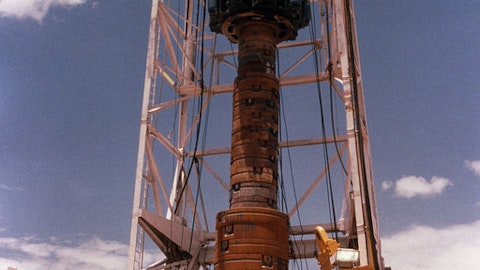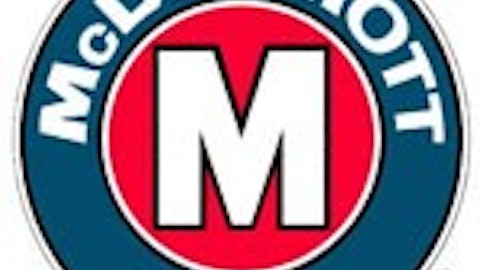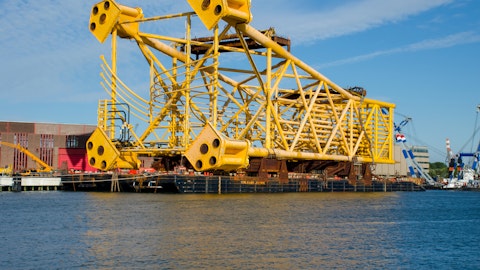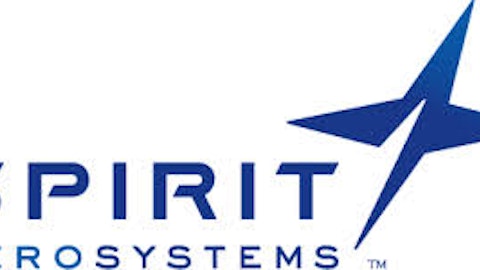The shares of McDermott International (NYSE:MDR) have rallied by 30.35% in today’s trading session after the receipt of a large lump sum contract from Saudi Aramco for several fields offshore of Saudi Arabia. The company didn’t mention any specific amount for the contract but called it “the largest single award for McDermott’s Middle East Area operations in company history.” According to the press release, the work will be executed through the second quarter of 2018, ensuring continued projects for the company. Saudi Aramco has become an even bigger client for McDermott International (NYSE:MDR) than it was after the earlier second long term agreement (LTA) in June 2015 between the two companies.
While discussing the details of the project, David Dickson, President and CEO of McDermott, said, “Our detailed knowledge and understanding of Saudi Aramco’s objectives, as well as our proven excellence in the Kingdom and the region continue to set us apart. Delivering on strong project execution and integrating McDermott’s local knowledge are critical to future success as we execute these and other projects for Saudi Aramco.”

McDermott International (NYSE:MDR) announced its second quarter financial results on August 10, reporting earnings per share of $0.04 against a loss of $0.03 in the prior-year quarter. The shares of McDermott International (NYSE:MDR) have grown by 50.17% year-to-date, an impressive performance compared to its peers in the struggling energy sector. Shares are still down by over 40% over the past 12 months however. The smart money was slightly bearish on McDermott International during the second quarter, with the aggregate holdings in the stock from the funds in our database up by 30.50% to $196.84 million, despite 39.06% growth in the share price during the same period. The hedge fund ownership rose by two to 20 during the quarter.
At Insider Monkey, we track hedge funds’ moves in order to identify actionable patterns and profit from them. Our research has shown that hedge funds’ large-cap stock picks historically delivered a monthly alpha of six basis points, though these stocks underperformed the S&P 500 Total Return Index by an average of seven basis points per month between 1999 and 2012. On the other hand, the 15 most popular small-cap stocks among hedge funds outperformed the S&P 500 Index by an average of 95 basis points per month (read the details here). Since the official launch of our small-cap strategy in August 2012, it has performed just as predicted, returning 118% and beating the market by more than 60 percentage points. We believe the data is clear: investors will be better off by focusing on small-cap stocks utilizing hedge fund expertise rather than large-cap stocks.
Insiders are likely to have a better understanding of the management and ongoing operations of the company than an average investor. The insiders of McDermott International (NYSE:MDR) were however have been inactive in 2015, providing us with no additional insight into the company’s future prospects.
What does the smart money think about McDermott International (NYSE:MDR)?
Let’s start with the hedge funds having major stakes in McDermott International (NYSE:MDR) at the end of the second quarter. Youlia Miteva’s Proxima Capital Management was the largest shareholder of the company, having ownership of 4.52 million shares with a market value of $24.14 million. Mount Kellett Capital Management, led by Mark McGoldrick and Jason Maynard, came in at number two, holding 4.43 million shares valued at $23.66 million. Millennium Management and Citadel Investment Group were among the other hedge funds holding substantial positions in the company.
Orbis Investment Management, led by William B. Gray, was among the hedge funds increasing their positions in McDermott International (NYSE:MDR) substantially during the second quarter. The investment firm increased its stake by 374% to 473,274 shares valued at $2.53 million.
Despite a large contract from Saudi Aramco, the company hasn’t released the amount of the contract, which leaves it open to speculation. We would recommend investors hold steady and initiate new positions only after receiving more information about the contract and its expected impact on the company.
Disclosure: None




